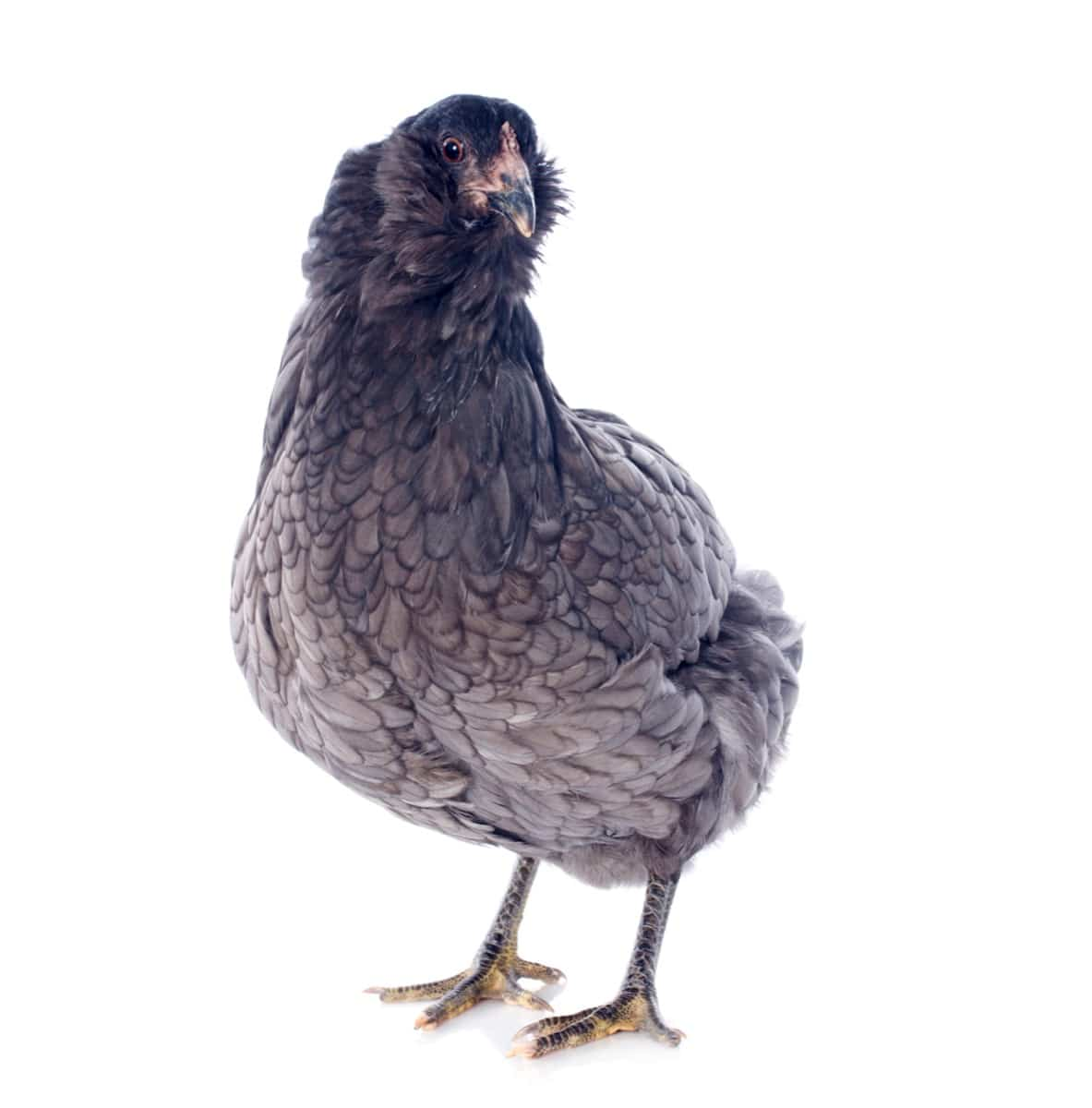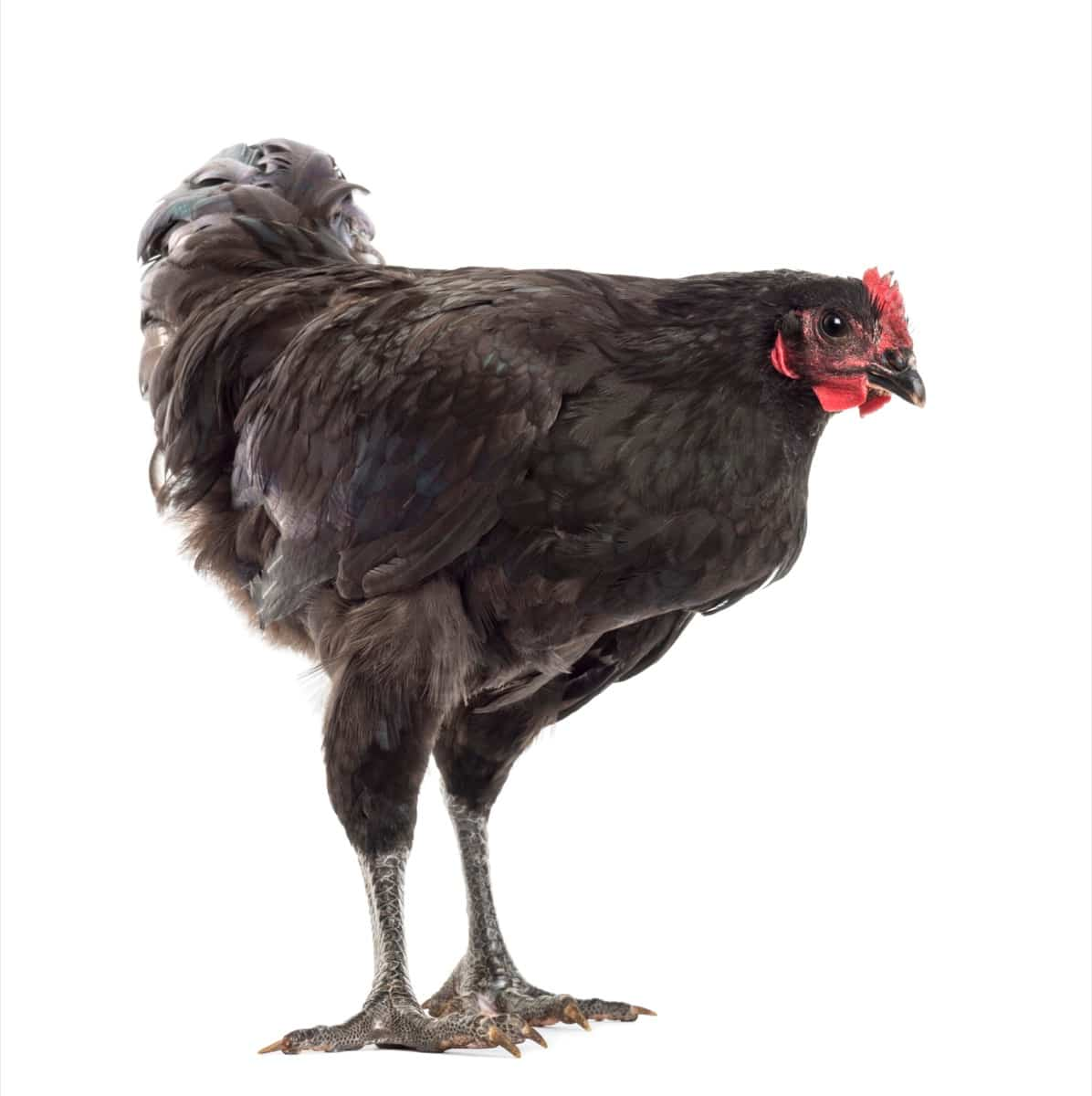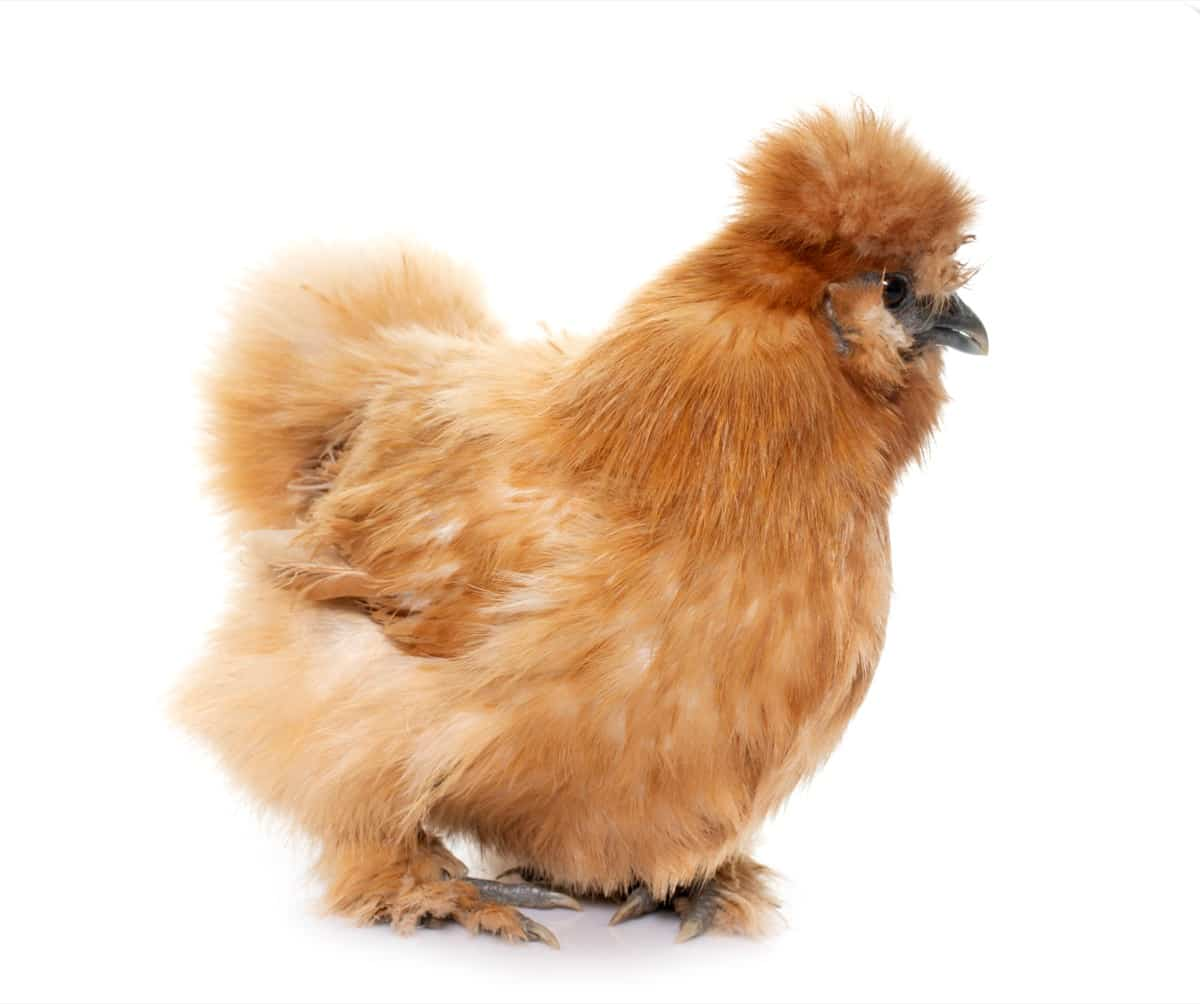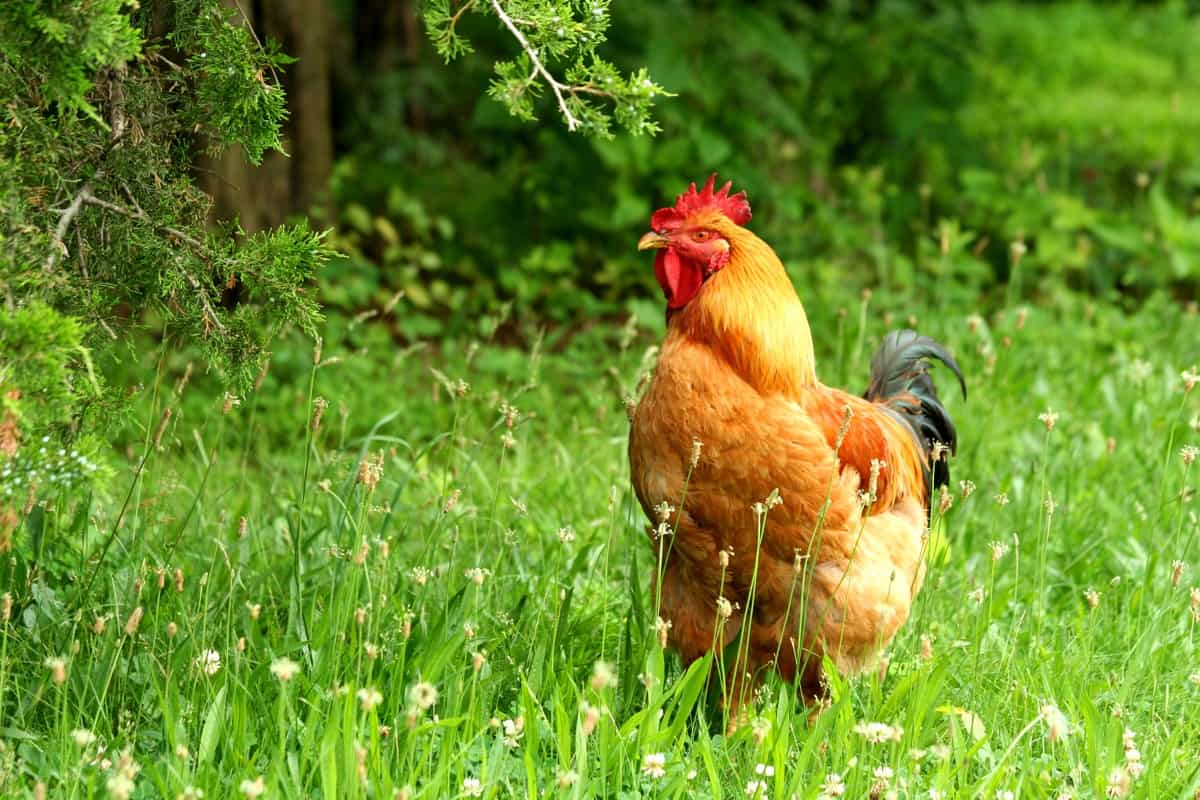Chicken farming, also known as poultry farming, is raising domesticated birds for their meat and eggs. It is a common agricultural activity practiced for centuries in various parts of the world. In extremely cold temperatures, you may need to provide supplemental heat inside the coop. Use heat lamps or pads designed specifically for poultry, ensuring they are safely secured and away from flammable materials.
10 Chicken Breeds That Do Well in Cold Climates
Ameraucana
- Ameraucana chickens are a popular choice for those living in cold climates, thanks to their ability to withstand low temperatures. These birds have a beautiful appearance with their fluffy feathers and vibrant colors.
- They have small combs and wattles. This makes them well-suited for colder regions where extreme temperatures can pose a risk to poultry.
- Furthermore, Ameraucanas possess friendly and docile personalities, making them great additions to any backyard flock. They are known for being calm and easy-going birds that get along well with other chicken breeds.
In case you missed it: Phoenix Chicken Breed: Facts, Egg Laying, Temperament, and Characteristics

Welsummer
Welsummer chickens are another excellent choice for cold climates. Originating from the Netherlands, these chickens have a beautiful dark brown color and lay large, dark brown eggs. They are known for their hardiness and ability to handle colder temperatures. Their thick plumage and small combs make Welsummers well-suited for chilly weather. They can withstand freezing temperatures without any issues. These birds are also friendly, making them additions to any backyard flock.
Chantecler
Chantecler chickens are a fantastic breed for those living in cold climates. These birds originated from Canada and were specifically developed to withstand the harsh Canadian winters. One unique feature of the Chantecler is its downy plumage that provides excellent insulation against the cold. This makes them well-suited for colder regions where temperatures can drop significantly.
In addition to their hardiness, Chanteclers have a calm and gentle temperament, making them ideal for backyard flocks. They are known to be friendly towards humans and get along well with other chicken breeds. These birds consistently lay light brown eggs throughout the year, another advantage for chicken keepers in colder climates who may struggle with egg production during winter.
Australorp
Australorps are a fantastic chicken breed for those living in cold climates. These birds are known for their ability to withstand low temperatures and thrive. With their beautiful black feathers, Australorps provide warmth during chilly winters and add a touch of elegance to your flock. One of the reasons why Australorps do so well in cold climates is their dense plumage.
In case you missed it: The Best Chicken Breeds in the Philippines

Their feathers offer excellent insulation, keeping them warm even when the temperature drops. Additionally, these chickens have a small comb and wattles compared to other breeds, which helps prevent frostbite. Another great thing about Australorps is that they’re highly adaptable. They can handle extreme weather conditions without any issues. These resilient birds will continue laying eggs consistently throughout the year, whether in snow or freezing rain.
Buckeye
- Buckeye chickens are a popular breed for those living in cold climates. These birds are known for their hardiness and ability to withstand harsh winter conditions. Buckeyes are well-suited to colder temperatures with their dense feathers and small combs.
- Their thick plumage helps insulate them from the cold, keeping them warm even when the mercury drops below zero. Additionally, their smaller combs are less prone to frostbite, which can be a common problem for other chicken breeds in frigid weather.
- Another advantage of Buckeye chickens is their adaptability. They have been bred specifically for survival in cold environments, making them tough and resilient birds. These chickens will thrive whether you live in a snowy region or an area with chilly winters.
Speckled Sussex
Speckled Sussex is a beautiful and versatile chicken breed that thrives in cold climates. Their striking speckled plumage adds a touch of color to any backyard flock. But it’s not just their appearance that makes them stand out. The key benefit of raising Speckled Sussex in cold climates is their hardiness.
These chickens are known for being robust and able to withstand colder temperatures without issue. Their dense feathers provide excellent insulation, keeping them warm even during chilly winters. Another advantage of Speckled Sussex in cold climates is its docile nature.
Wyandotte
Wyandotte chickens are a popular breed that thrives in cold climates. Their fluffy feathers and compact bodies make them well-equipped to handle the chilly temperatures. These chickens have a calm and friendly temperament, making them great additions to any backyard flock. The main features of Wyandottes are their beautiful plumage. They come in a wide range of colors, including silver laced, golden-laced, blue-laced red, black, white, and more. Their feathers provide insulation during the winter months and add an aesthetic appeal to your flock.
Silkie
Silkies are a unique and adorable breed of chicken that thrives in cold climates. With their fluffy feathers and gentle temperament, they are often referred to as the teddy bears of the chicken world. The main feature of Silkies is their soft, silky plumage. These feathery wonders look incredibly cute and provide excellent insulation during chilly winters.
In case you missed it: How to Identify, Treat, and Prevent Chicken Lice

Their downy feathers trap air close to their bodies, helping them stay warm even in freezing temperatures. In addition to their impressive winter resilience, Silkies are known for being great mothers. They have a strong maternal instinct and are highly attentive to their baby chickens’ needs. This makes them ideal for breeding and raising baby chickens in colder regions.
Plymouth Rock
Plymouth Rock chickens are known for their adaptability, making them an excellent choice for cold climates. These birds have a calm and friendly demeanor, which makes them easy to handle and care for. Their feathers provide good insulation against the cold weather, helping them stay warm even in freezing temperatures. The advantage of raising Plymouth Rocks in colder regions is that they continue laying eggs throughout winter.
This means you can still enjoy a fresh supply of eggs even when other breeds may stop producing during the colder seasons. Another benefit of having Plymouth Rocks in your flock is their ability to withstand harsh conditions. They are resilient and can tolerate hot summers and frigid winters without much trouble. This makes them a reliable breed for farmers in unpredictable weather patterns.
Rhode Island Reds
- Rhode Island Reds are a popular chicken breed that thrives in cold climates. They are known for their hardiness and ability to withstand harsh winter conditions. These chickens have beautiful mahogany feathers that provide excellent insulation against the cold.
- Rhode Island Reds do well in cold climates is their dual-purpose nature. Not only do they lay a good number of large brown eggs, but they also have a decent meat yield. This makes them ideal for small-scale farming in colder regions.
In case you missed it: The Red Star Chicken: Egg Laying, Temperament, and Broodiness

- Another advantage of raising Rhode Island Reds in cold climates is their friendly and docile temperament. They are easy to handle and adapt well to different environments, making them suitable for novice and experienced chicken keepers.
- These chickens are also known for being relatively low maintenance. They are robust birds that can tolerate colder temperatures without requiring additional heating or insulation in their coop. They also have strong immune systems that help them resist common poultry diseases often associated with colder weather.
Conclusion
In chicken farming, farmers provide their chickens shelter, feed, and water while ensuring they have enough space to move freely. The primary objective is to create a conducive environment that promotes healthy growth and productivity. Adjust your chickens’ diet during colder months by providing additional high-quality grains and protein-rich feed options like mealworms or sunflower seeds to help them maintain their body temperature. Chickens are versatile poultry birds that are well-suited for raising in cold climates.
- Feed Your Flock for Less: Top 10 Tips to Save on Chicken Feed
- Ultimate Guide to Ossabaw Island Hog: Breeding, Raising, Diet, and Care
- Hatching Answers: The Top 10 Reasons Your Chickens Aren’t Laying Eggs
- Eggs and Economics: Breaking Down the Cost of Raising Backyard Chickens
- Defend Your Greens: Proven Methods to Keep Iguanas Out of Your Garden
- Ultimate Guide to Cinnamon Queen Chicken: A Comprehensive Guide for Beginners
- Ultimate Guide to California Tan Chicken: Breeding, Raising, Diet, Egg-Production and Care
- Ultimate Guide to Marsh Daisy Chicken: Breeding, Raising, Diet, and Care
- 10 Types of Chicken Farming Businesses You Can Start for Profits